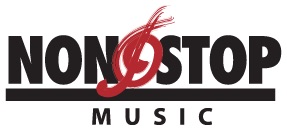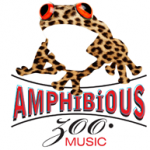Music Libraries 101
by Michael R. Hicks
A little background on my experience with production music libraries:
In 2002 I was hired as an Account Exec/Music Consultant at Non-Stop Music with the primary responsibility to promote and license their music library. When I started, we had just under 100 CDs worth of music to offer. That number grew to around 750 CDs worth of music as we began to sub-publish other catalogs. Around 2007, Non-Stop Music was purchased by the Warner Music Group.
 Warner’s intent was to build around us and grow our catalog and offerings. Some of our competitors (Groove Addicts, 615 Music, Carlin Music, V-The Production Library) were later acquired by Warner to expand our catalog, which grew to over 2600 CDs worth of music. Our name was later changed to Warner/Chappell Production Music.
Warner’s intent was to build around us and grow our catalog and offerings. Some of our competitors (Groove Addicts, 615 Music, Carlin Music, V-The Production Library) were later acquired by Warner to expand our catalog, which grew to over 2600 CDs worth of music. Our name was later changed to Warner/Chappell Production Music.
 In December 2014, I decided to leave Warner/Chappell Production Music for an opportunity with a newer music library called Amphibious Zoo Music, which was started by one of the same guys that started Non-Stop Music back in the early 1980s.
In December 2014, I decided to leave Warner/Chappell Production Music for an opportunity with a newer music library called Amphibious Zoo Music, which was started by one of the same guys that started Non-Stop Music back in the early 1980s.
I’ve been fortunate to also be able to contribute original compositions to both Non-Stop Music Library and Amphibious Zoo Music Library.
About the industry:
Production music libraries can be compared to “stock photo” libraries. A broad selection of all types of music are available for media companies to use in their productions, like movie trailers, TV commercials, corporate videos, internet clips, TV shows, radio spots, etc. – pretty music anything that needs music.
There are primarily two business types when it comes to production music libraries: “buy out” and “licensed”. “Buyout” libraries ask their customers to pay a one-time fee. Generally, they can then use the music they purchased for anything they want for the rest of their lives. (Some limit the rights to non-broadcast/internet use only). A “licensed” library issues licenses with very specific rights (broadcast, web, PPV, theatrical, etc.) for a specific term (13 weeks, 1 year, in perpetuity, etc.) for specific projects (Joe’s Lawn Care promo video, Harry Potter and the Sorcerer’s Stone movie trailer, etc.).
My experience is with “licensed” libraries, so I will focus my comments towards those opportunities (though most of what I say will probably apply to both types of production music libraries).
Contributing to Production Music Libraries
Generally, most “licensed” production music libraries will buy your music outright, so they then own your track*. You retain the writer’s share for your music, so you will earn performance royalties when applicable. (You will want to make sure you are registered with a Performance Rights Organization like ASCAP, BMI, etc.) Many composers that have written a larger quantity of tracks for production music libraries do pretty well with their performance royalties. (*Note that some libraries let you keep ownership of your tracks, but will require you to sign an agreement that allows them to exclusively administrator synchronization licenses for your music.)
Depending on the library, you may or may not be asked to submit finished audio. If you have your own recording studio or an excellent midi studio at your home and can produce good-sounding audio, they may take your mix, or they may take your stems/session and do their own mix, or they may rerecord some or all of the tracks in their own studios.
If you are good at a certain genre/style of music (blues, EDM, new age, jazz, folk, slapstick, rock, cinematic, etc.), focus your efforts there first. Best foot forward to get in the door.
Get familiar with the strengths of the library you are submitting music to. Listen to the music on their web sites – get a feel for their production values. Find out their needs, if possible. Find out if there is a need for the style of music you are strong in writing. Send a few samples of your best work via Soundcloud or a similar audio streaming service. If you have had your music used in productions, send links if available. Music libraries get unsolicited submissions daily, so again, be smart with what you put in front of them so they don’t feel like you are waisting their time.
The Production Music Libraries
Here is a list of the major production music library companies that are “primary members” of the PMA (Production Music Association). Note that there are many more music libraries than what is listed here. Some of the companies listed below sub-publish multiple libraries, so if you go to (for example) 5 Alarm Music’s web site, you’ll see a long list of libraries that they represent.
4 Elements Music
5 Alarm Music
615 Music
8118 Music
Amphibious Zoo
APEX Music
APM
Brand X Music
BrG Music Works
Cezame Music
clear Music
Cue Music
DownPat Music
FirstCom
Immediate Music
Jack Attack Tracks
Killer Tracks
konsonant
Manhattan Production Music
Master Recs
Megatrax Production Music
MusicBox
Music Beyond
Non-Stop Production Music
OGM Music
Ole MusicBox
Omnimusic
Pacifica Music
PigFactory
PITCH hammer Music
PostHaste
red Cola
Rick Krizman Music
RipTide Music
Stephen Arnold Music
Studio 51 Music
The License Lab
The Vault
TRF Music
Universal Publishing Production Music
Vanacore Music
Videohelper
Warner/Chappell Production Music
X-Ray Dog Music
The major world-wide players in the industry in terms of size and revenue are as follows: Universal Publishing Production Music, Warner/Chappell Production Music, Megatrax, Killer Tracks, FirstCom, 5 Alarm, APM, Extreme Music, Immediate Music, Videohelper
For those in Utah, locally-owned production music libraries that I am aware of include the following:
Non-Stop Music (Warner/Chappell Production Music, produced by Bryan Hofheins/Judd Maher)
Amphibious Zoo Music (owned by Randy Thornton)
Acoustitracks (owned by Judd Maher/Mike Dowdle – the attorney, not the guitar player)
AudioActive (owned by Bryan Hofheins)
Fatty’s (owned by Dan Carlisle)
Anarchy Music (owned by Todd Sorensen)
I hope this is a helpful introduction to the world of writing music for production music libraries.
